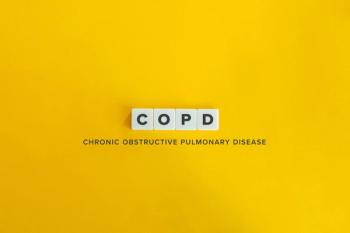
Omega-3 Fatty Acids Associated With Improved Lung Functioning
A recent study found that the largest positive associations were seen in former smokers and patients of Hispanic race.
Omega-3 fatty acids may have beneficial effects on lung health, according to new research results.1 Published in the American Journal of Respiratory and Critical Care Medicine, the findings showed that docosahexaenoic acid (DHA) provided the largest benefit.
The two-part study—supported by the National Institutes of Health’s National Heart, Lung, and Blood Institute—hopes to improve understanding of how nutritional interventions can help lung disease prevention efforts.
“We know a lot about the role of diet in cancer and cardiovascular diseases, but the role of diet in chronic lung disease is somewhat understudied,” Patricia A. Cassano, PhD, a corresponding author on the study, said in a release.2 “This study adds to growing evidence that omega-3 fatty acids, which are part of a healthy diet, may be important for lung health too.”
Investigators conducted a longitudinal study and a Mendelian Randomization study to examine associations of omega-3 fatty acids with lung function decline and incident airway obstruction in adults from general population cohorts.
In the longitudinal study, researchers gathered data from the National Heart, Lung, and Blood Institute’s Pooled Cohorts Study. It included 15063 participants who had no evidence of chronic lung disease. The participants, of which 55% were female with an average age of 56 years, were followed for an average of 7 years.
The study found that higher levels of omega-3 fatty acids, especially DHA, were associated with reduced lung function decline. It showed that an increase in DHA of 1% of total fatty acids was associated with an attenuation of 1.4 mL/year for FEV1 and 2.0 mL/year for FVC.
Additionally, these findings persisted across sex, smoking histories, as well as race and ethnicity. However, the largest positive associations were seen in former smokers and participants of Hispanic race.
In the second part of the study, data was obtained from the UK Biobank, a large database that contains health information from over 500,000 people. Investigators analyzed genetic markers to see how dietary omega-3 fatty acid levels correlated with lung health. Results also showed that higher levels of omega-3 fatty acids were associated with improved lung function.
One limitation of the study was that it included only healthy adults, but the researchers noted that they are collaborating with the COPD Gene Study to examine the relation between omega-3 fatty acids and lung function in people with chronic obstructive pulmonary disease.
“We’re starting to turn a corner in nutritional research and really moving toward precision nutrition for treating lung diseases,” Bonnie K. Patchen, PhD, first author on the study, said in a release.2 “In the future, this could translate into individualized dietary recommendations for people at high risk for chronic lung disease.”
References
1. Patchen BK, Balte P, Bartz TM, et al. Investigating Associations of Omega-3 Fatty Acids, Lung Function Decline, and Airway Obstruction. J Respir Crit Care Med. 2023;10.1164/rccm.202301-0074OC. doi:10.1164/rccm.202301-0074OC
2. Omega-3 fatty acids appear promising for maintaining lung health. News Release. NIH. July 20, 2023. Accessed July 26, 2023. https://www.nih.gov/news-events/news-releases/omega-3-fatty-acids-appear-promising-maintaining-lung-health
Newsletter
Pharmacy practice is always changing. Stay ahead of the curve with the Drug Topics newsletter and get the latest drug information, industry trends, and patient care tips.























